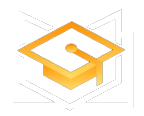Canada is a top destination for international students seeking high-quality education and diverse cultural experiences. Fully funded programs offer a unique opportunity to study without the financial burden of tuition fees and living expenses.
Here’s a comprehensive guide on how to find and apply for fully funded undergraduate and postgraduate programs in Canada.
Understanding Fully Funded Programs
Fully funded programs cover tuition fees, accommodation, and sometimes additional expenses such as travel and study materials. These programs are often offered by universities, government bodies, and private organizations to attract talented international students.
Step 1: Identify Your Study Level and Field
Start by determining your study level (undergraduate or postgraduate) and field of interest. This will help you narrow down your search and find programs that align with your academic and career goals.
Step 2: Research Universities and Programs
Canada is home to numerous universities offering fully funded programs. Some notable ones include:
- University of Toronto: Provides a range of scholarships and financial aid options for students from around the globe.
- University of British Columbia: Offers the International Leader of Tomorrow Award, which fully covers both tuition and living expenses.
- McGill University: Offers merit-based scholarships and financial aid for international students.
Use university websites and educational portals like Study in Canada to explore available programs and their requirements.
Step 3: Check Eligibility Criteria
Each fully funded program has specific eligibility criteria. Common requirements include:
- Academic excellence (high GPA or equivalent).
- Proof of English or French language proficiency (IELTS, TOEFL, or DELF/DALF).
- Letters of recommendation.
- Personal statement or essay.
Ensure you meet the eligibility criteria before applying.
Step 4: Prepare Your Application Documents
Gather all necessary documents to support your application. Typical documents include:
- Transcripts and Certificates: Academic records from previous studies.
- Language Proficiency Scores: Results from language tests.
- Recommendation Letters: Letters from teachers or professors who can vouch for your academic abilities.
- Personal Statement: An essay outlining your academic achievements, career goals, and reasons for choosing the program.
- CV/Resume: A detailed account of your academic and professional background.
Step 5: Apply for Scholarships
In addition to fully funded programs, many universities offer scholarships that cover partial or full tuition fees. Explore scholarship databases such as:
- ScholarshipsCanada: A comprehensive database of scholarships for international students.
- EduCanada: Lists scholarships and funding opportunities provided by the Canadian government and institutions.
Step 6: Apply to Universities
Once you have identified programs and scholarships, start the application process. Most Canadian universities allow online applications through their websites. Pay close attention to application deadlines and ensure you submit all required documents on time.
Step 7: Prepare for Interviews
Certain programs may necessitate an interview as part of their selection process. To get ready, consider:
- Researching the program and university.
- Practicing common interview questions.
- Being ready to discuss your academic background and motivation for applying.
Step 8: Secure a Study Permit
After receiving an offer of admission and funding, apply for a Canadian study permit. Required documents typically include:
- Proof of acceptance from a Canadian institution.
- Proof of sufficient funds.
- Valid passport.
- Passport-sized photos.
- Proof of language proficiency.
- Medical exam (if required).
You can apply for a study permit online through the Immigration, Refugees and Citizenship Canada (IRCC) website.
Step 9: Plan Your Arrival
Once your study permit is approved, plan your arrival in Canada. Arrange accommodation and familiarize yourself with your new city.
Many universities provide orientation programs designed to assist international students in adjusting to their new environment.
Conclusion
Finding and applying for fully funded programs in Canada requires thorough research and preparation. By following these steps, you can increase your chances of securing a place in a prestigious program and enjoy a rewarding educational experience in Canada.
Take advantage of the resources available, stay organized, and remain persistent in your pursuit of academic excellence.



